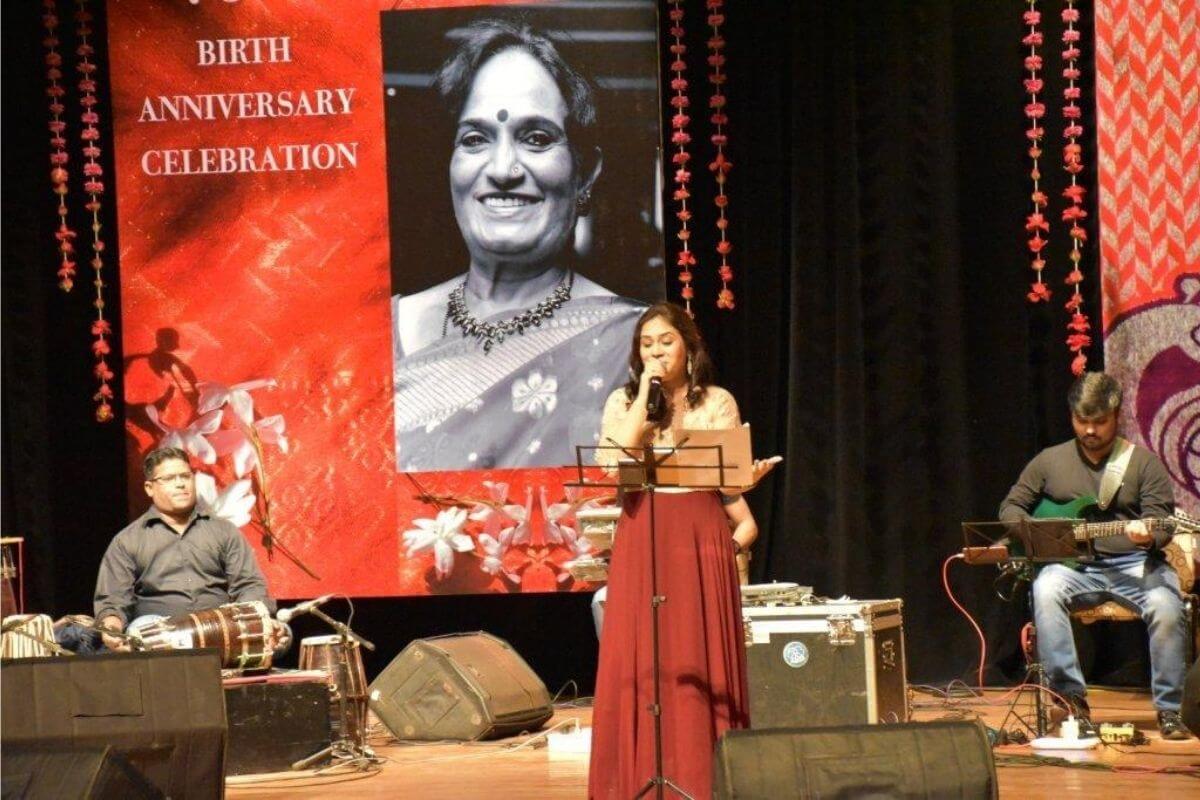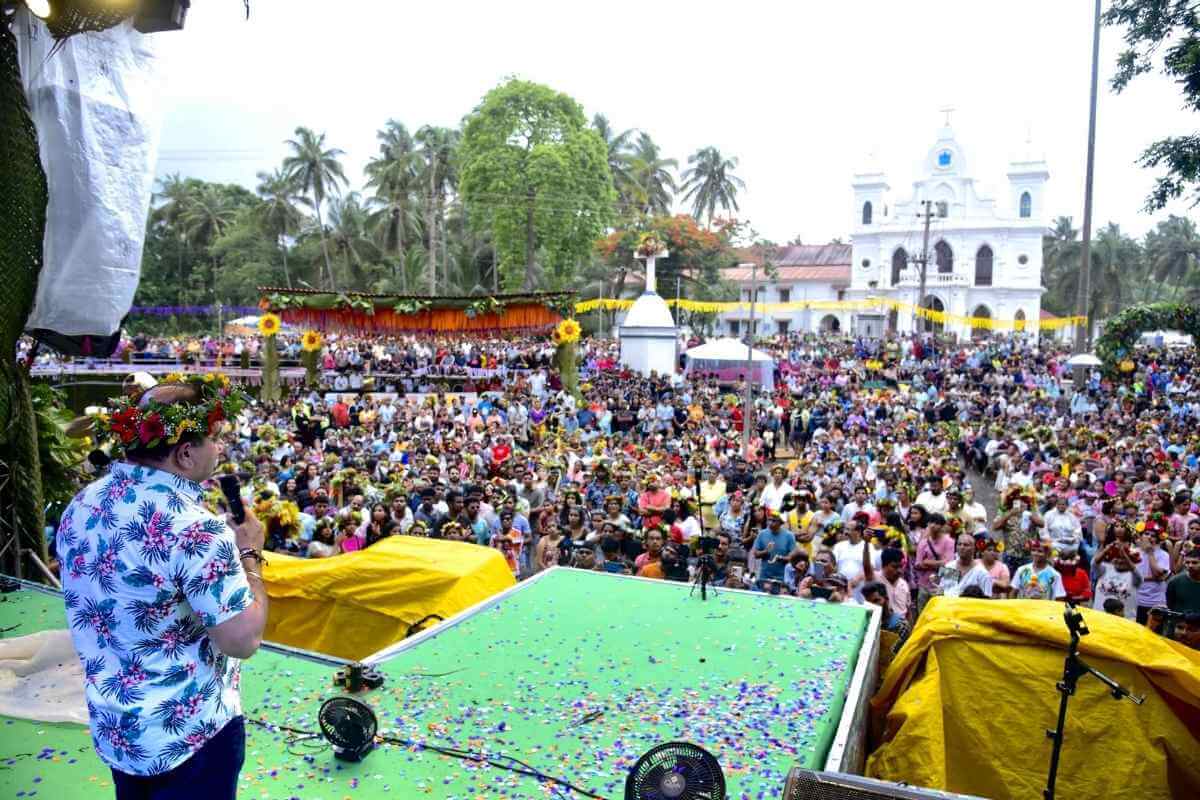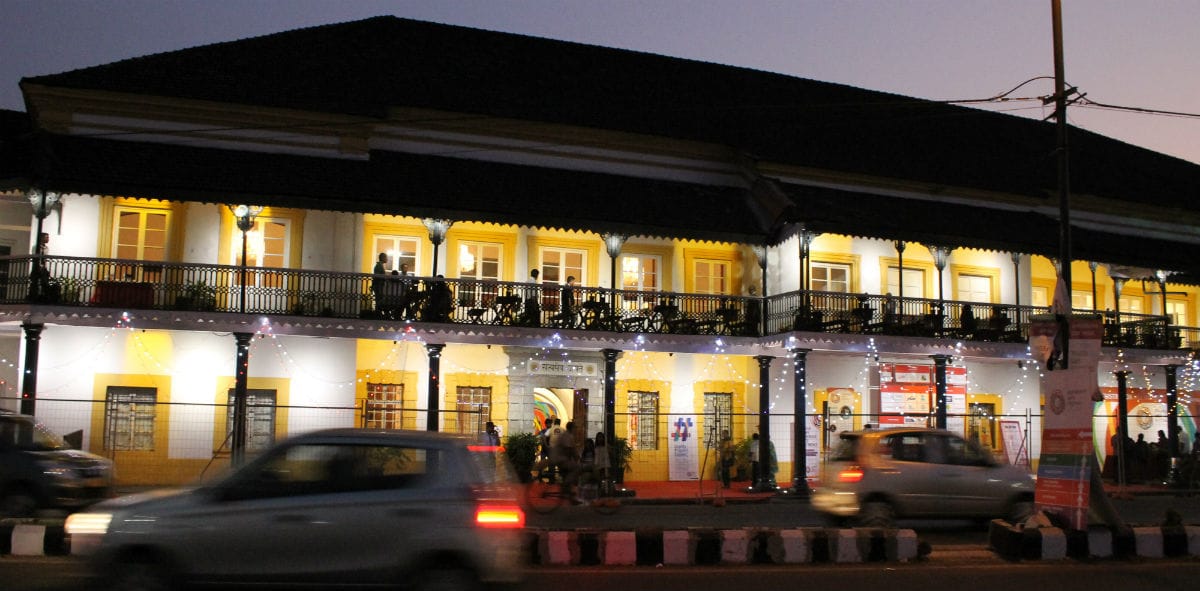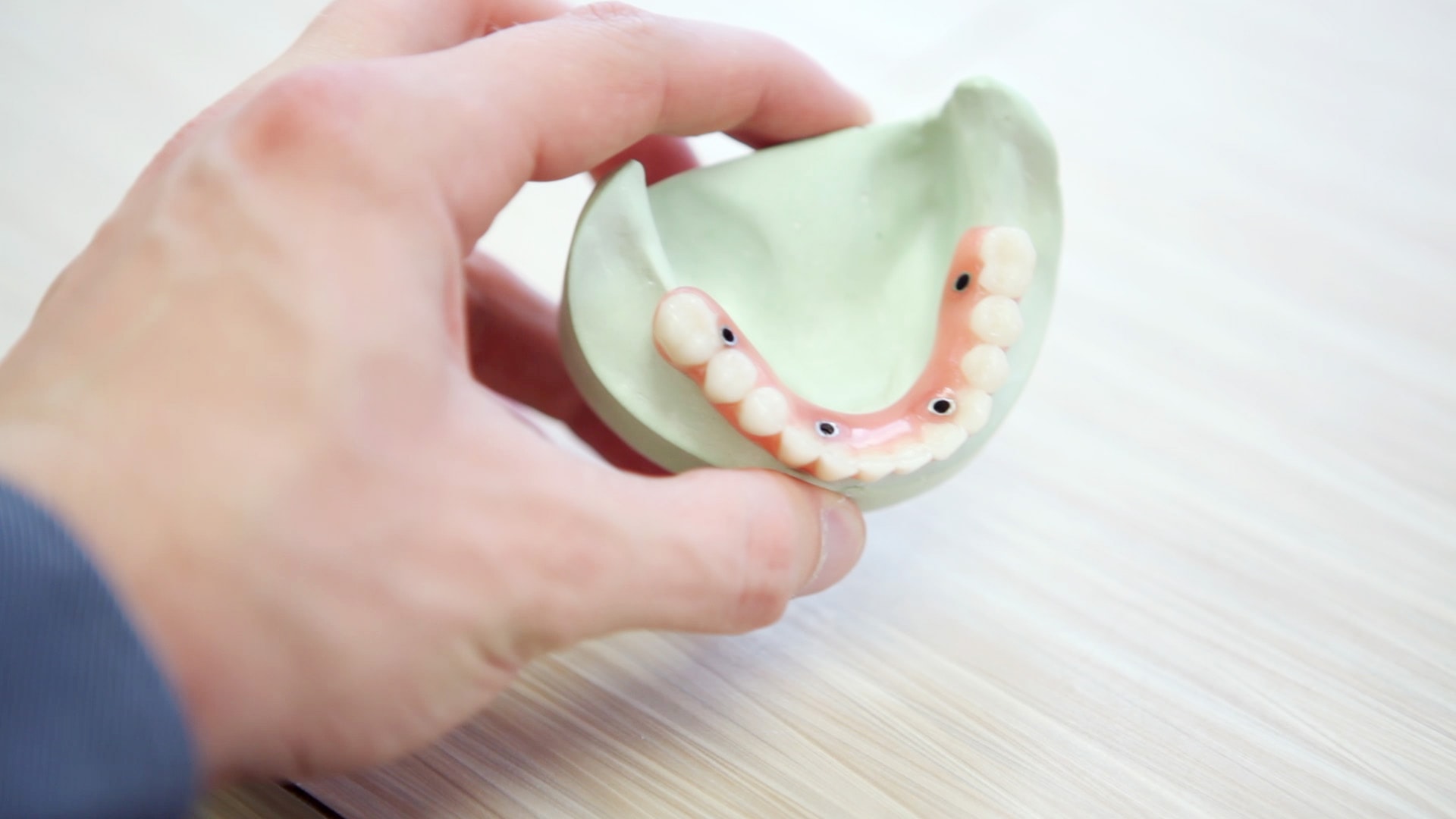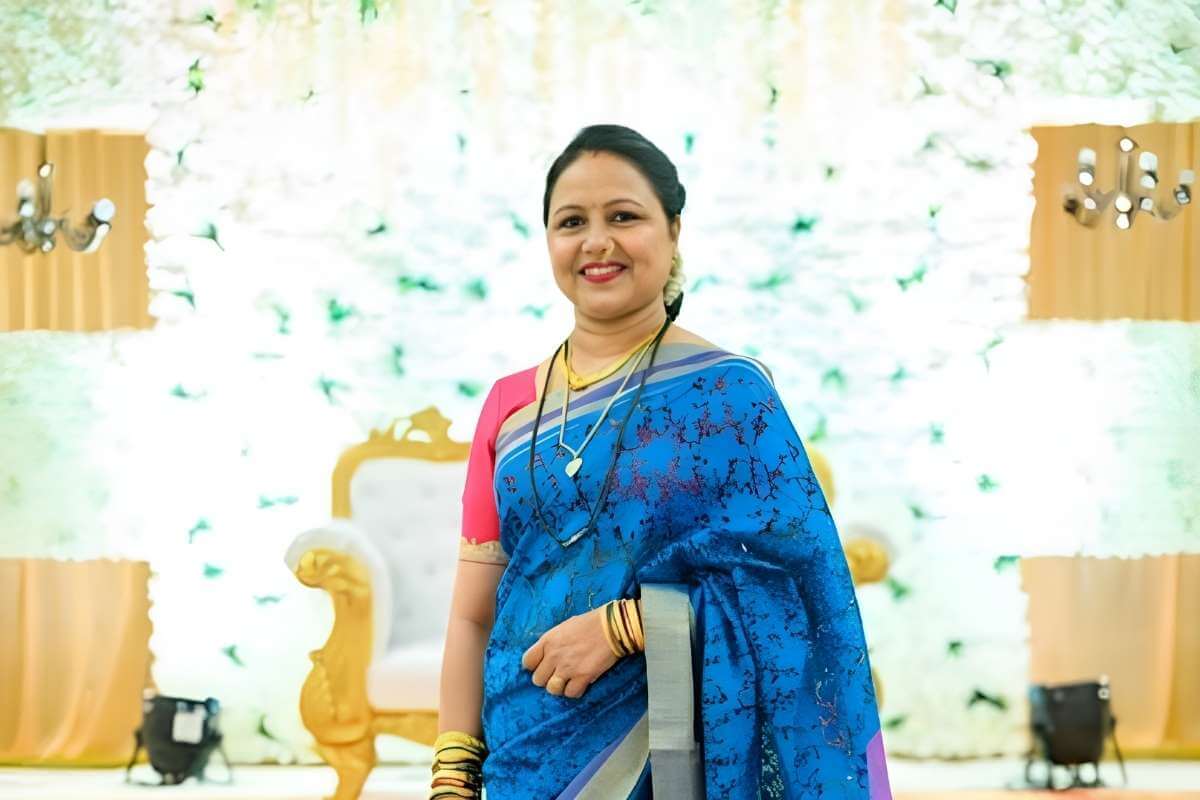I have never had an opportunity to meet and interact personally with Mandatai and naturally it would have been a very difficult task for me to write about her. However, I was fortunate enough to attend Mandatai’s 75th Birth Anniversary organized by Nana Bab in her memory and that offered me glimpse of what a great personality late Mandatai was . I have attended innumerable memorial programs prior to this l, but this was something completely different. It was curated in such a way, that Mandatai’s entire life just scrolled in front of my eyes, and I was instantly inspired to pen down this story.
This story is based on the feedback given by four people who have been very close to Mandatai and who have been a part of her journey, in one way or another. The first pillar of this story is Mandatai’s kid brother, Anand Kari, aka Nandu Mama, who was with her right from their childhood. Second is her eldest son Nitin Bandekar. Being the first child, he had been very close to his mother. The next one is Shri Ramakant Khalap Ji, a very close acquaintance and a family friend of the Bandekars. Lastly, Dixit Sir, who runs two institutions related to the empowerment of women and children. These four people are an integral part of Mandatai’s life journey and they have been a part of the different phases of her life, their perspective makes the story both complete and comprehensive. I am sure that through this story, I will try to bring the memories of Mandatai back to life.
Since the story is based on the feedback from her close relations, it has to begin right from her childhood, doesn’t it? Manda Bandekar, also known as Mandatai in the society, due to her dedicated contribution towards society, and especially towards empowering the women and girl child who come from a very humble background. Being the eldest child in the family, she used to take care of her siblings like their mother, and that quality in her helped her throughout her life. She played all her roles very efficiently and without any complaints. She was the lovely wife of Narayan (Nana) Bandekar, loving and caring mother to Nitin Bandekar and his five siblings, elder sister to Anand Kari, a brilliant student of Sir Madhukar Dixit, and an affectionate friend of Ramakant Khalap Ji.
Mandatai was born in Pune city, situated in the neighboring state of Maharashtra. Pune is known as the city of education, rich in culture, and when you will go through her story, you will understand that she indeed carried that rich culture and education throughout her life. Mandatai’s youngest brother, Anand Kari, is the first pillar of this story, and who will tell us about Mandatai’s journey right from the beginning. Anand Kari is dearly known as Nandu Mama amongst the close family circle of the Bandekar Family. Nandu says “Mandatai was like my mother, and since I was the youngest, she always cared for me like her child.” He also added “I remember the incident when I was in primary school and she was a high school student. In those days, the schools used to organise a cinema trip for the students at a very subsidised rate, and she always used to take one more ticket for me.” He then added: “On the day of the cinema trip, she used to come and pick me up from my class with extra clothes. She was so simple and gullible that she never understood the practical world.” Nandu Mama then went on to say: “A very simple example I would like to share here is that she used to carry a powder tin and comb with her, and to date I never understood as to why someone would apply powder on the face before going for the movie… but for her it was important, as she wanted me to look very decent when going to a social event.”
According to Nandu Mama, he never had any interest in studies right from the beginning. But despite that he managed to complete his studies and he says that the credit for this goes to Mandatai. “I still remember that Tai used to carry my school bag all the way to school, because I was always more interested in the activities happening en route to my school,” he said. He added that his entire attention was on the magician showing the tricks by the roadside. “I always wanted to understand how that magician brings the dead man back to life with the help of the magic wand. But she would not listen to me, and drag me to the school, and it was because of her that I finally managed to complete my studies.”
From here the story takes another turn – as Nana Bab comes into the picture. According to Nandu Mama, somehow, he finished primary and secondary, and even graduated – due to the consistent efforts of Mandatai. But now comes the second phase when Mandatai met Nana. “This is a very interesting part of the story,” said Nandu Mama, adding that there was the entry of a new character into the story and that was Nana Bab. “My Tai fell in love with Nana Bab, and according to me it was my job to protect my Tai from this trouble, as I was the one Tai protected the most.”
During that time Nana Bab was completing his higher studies in Pune. He used to live in the same building as Mandatai. “Nana Bab was staying on the top floor and was doing his college, and I was sure that there was something going on between Nana Bab and Tai. In those days Nana Bab had a golden coloured Lambretta scooter. It was not long before I got the news that Nana Bab and Mandatai were roaming around on this scooter. I used to get very angry with this man who came into our life, but my Tai bettered that phase of my life, and Nana Bab married my sister and I became his brother in law.”
After finishing his graduation, Nandu Mama came down to Goa on the invitation of Mandatai. “I always wanted to work in the bank, and Tai called me to Goa, saying Nana Bab had made an arrangement of a bank job for me,” and he then said: “When I came down to Goa, Nana Bab told me to go to the Bank of India on the bus stand, as my job is already fixed there. No interview, no appointment, it was a straight job offer. That was the time I realised the value and affection Nana Bab had towards me.”
Nandu Mama did not work at the Bank of India for the rest of his life, as soon Nana Bab gave him an opportunity to work in his office and handle the accounts. Nandu Mama now recollects how his entire life has changed due to Mandatai and Nana Bab. “I would not have been what I am now if it was not my Tai and now Nana Bab” with these words Nandu Mama finished his part of the story.
Mandatai and Nana Bab have six beautiful children, Nitin is the eldest amongst them, and being the first child, he was very close to his mother. Nitin became very emotional while talking about his mother. According to him, Mandatai loved to celebrate her birthday. “We all recollect four years back when she was unwell and she was looking forward to her 70th birthday on 29th January and she had also planned everything for that,” said Nitin with almost tears in his eyes.
Mandatai was an excellent planner and she had a wonderful bucket list of things that she wanted to do. “I remember mummy used to write down everything in her diary, the things she wants to do, in fact she wanted to do everything she always planned. Even today, we refer to her books and notes for things that we would need help with such as names of our ancestral family members, recipes, and all this is kept intact in her cupboard to date,” he added.
Mandatai had a deep interest in music. “She used to like English music but not many people know about it,” said Nitin adding that her favourite song was ‘USA for Africa – We Are The World’.
Nitin said: “Mom was a very good planner, music lover, and writer but unfortunately, I do not think she could complete the book she was working on. The poem that you see here was something that she had written when she was unwell. As I recollect, after she came back from the hospital, she called for all of us, and she narrated the poem that she had been working on at the time. She loved writing, and she would write in her diary on a daily basis about her day and all the things that she would like to remember and document. In fact, it was she who inculcated this habit in my siblings and me, to start writing a diary and to maintain the same. Not all of us write a diary, but for most of us that do, we have learned to maintain a diary from her.”
According to Nitin, Mandatai was a very adventurous person and she would always inspire us to take up some adventurous travel holidays. “But at the same time, she was also nervous about travelling too much due to her leg problem but that didn’t stop her from enjoying life,” said Nitin, adding that “as far as I recollect, the holidays that we have gone on in the last 10 years were all due to the push given by Mummy. She wouldn’t be limited to just traveling within the country, and would always welcome any trip that would come up. When we did visit any international country, she would then go on to say how she would love to visit someplace within India itself.”
“My mom was a wonderful mother. Bringing up 6 children is not a joke. She has never said no to us for anything, and all of us growing up, even though we were a year or two apart from each other, we all had individual problems that we would discuss with her and she would listen to us carefully. But sometimes she would get angry and tell us how to do it the right way. She knew when to be strict and when to be loving, and she would tell us how it was the right way to do something or behave in a certain way,” he averred.
Another thing Nitin told me about his mother is about her passion for driving. “Besides being a wonderful listener, an adviser to all of us, a wonderful poet, and with her being adventurous, she loved driving cars. She had a Volkswagen Jetta, this was the 1st Jetta we had and Daddy had dubbed it as “Mummy’s Car” so that nobody else should touch it,” he said, adding that “she was learning classical singing and she would travel to Panaji for her classes with her tutor, and she would travel thrice a week by taking the car out on her own. With us being younger, we would always wonder at the time how she would travel all the way so far.”
Finally, Nitin concluded saying that they organised the musical night on her birth anniversary, due to her love for music. “In her honour, and in remembering her, is why we held this evening in musical fervor by playing all her favourite songs and music, by inviting her friends, family and loved ones.”
The story narrated by Nitin gives us deeper insight into the life of Mandatai and how she dealt with the situation at home, whether it is about her children or otherwise. She was a determined lady and knew very well how to deal with the most complex situations with ease.
Shri Ramakant Khalap Ji does not require any introduction, as everyone knows him as a veteran politician and a very kind-hearted person, with a very graceful and pleasant personality. Ramakant Ji came into contact with Nana Bab sometime in the 1980s, and that later blossomed into a deeper friendship. According to Mr. Khalap, he and Nana would always discuss politics, music, education and current affairs and Mandatai would also become a part of their conversation. “She (Mandatai) once heard my speech over the TV/radio, and she would call me up and tell me, “Ramakant, you spoke so well” and I would feel as if she was right in front of me and this is how Mandatai became an essential part of my friends and family circle.”
“I still remember that every time I visited their home, she would ask me to stay over, have lunch and only then leave. All of this conveyed in her loving and compassionate tone and approach towards life. Even though the dinner was late, she would ask us how the food was and how did we like it,” he added.
Mr. Khalap still recollects how pleased personally Mandatai was when he said that the smile that we see here on the painting is nothing compared to the smile that I have seen in real life, and that is something extraordinary. “The way she spoke was very soft and mellow but she made sure her point of view was never left unheard. The conversations between us were always fruitful and wonderful, and at times when there were events, she would call me up and ask me whether I was going for the same. She would instruct me to get my wife along and that once the program gets over, we would go out for dinner,” he averred.
While talking about Mandatai, Mr. Khalap suddenly remembered one important incident. “In the month of December, Mandatai, Nirmala (my wife) and I were sitting in the veranda of the temple in the cold weather and there is something magical about the relation between the atmosphere and music that kept us hooked and enthralled,” he said adding that “she had done a lot for the society and contributed her part in many ways, but never have I come across any articles or newspaper clippings that said so. A few of her countless contributions include her work for The ‘SEVA’ Trust, in the field of music and musical education, in the field of literature (Sahitya), and out of the many wishes she had, the most prominent one was to have her own newspaper.”
“One day she mentions this idea of newspaper to me and Nana. She was curious and asked us in a very questioning tone whether it would work out since there was already an established presence of newspapers such as Gomantak, and Navhind Times,” said Mr. Khalap, adding that the topic then landed upon who would fit the role as the editor for the newspaper. “I suggested the name of one my close friends, Late Vishnu Wagh. The four of us then met one day and discussed in length about the ideas and the newspaper, but in another life, this paper would have seen greater heights of success had Vishnu stuck to the same instead of doing something else and unfortunately this newspaper never happened.”
According to Mr. Khalap, there are countless moments from Mandatai’s life that are reflected in her poem. “During her last days, Nana called me up and told how she was hospitalised and I immediately went to see her. She was in no condition to talk, but there was a smile on her face that was so consistent that nothing could change it,” he said. “Today she’s maybe not amongst us, but each time that I visit the Bandekar house, I do feel her presence and that is still something that is present in me.”
“According to me the ability to bring together family, friends and loved ones is not an easy task and it is something not many people can do,” he said, adding that, “the things that she did for the people was done unconditionally and they were not done for any reason other than love and compassion, as she never expected anything from anyone in return. She wasn’t pompous, neither proud, even though she belonged to a really prominent family, she really knew how to carry herself with confidence and class. Everyone knows how Mandatai and Nana were the most happening and sought-after couple in Vasco – and this is what set them apart, because of the love they shared and the way they carried themselves.” With these words Mr. Ramakant Khalap Ji concluded his part of the story.
The next person I am going to bring to this story will tell some facts about Mandatai. He is famously known as Dixit Sir, Professor Madhukar Dixit, who has been an integral part of Matruchaya Trust and Vishwa Hindu Parishad, to carry out the cultural and social activities in Goa. Dixit Sir came in contact with Mandatai due to her social work-related activities. “I feel deep inside my heart that Mandatai should have been here today but there is no remedy to the destiny,” said Dixit Sir, adding that Mandatai had been associated with Matruchaya right from its inception. “She used to come and play with the children, and that time, I was not aware whether she was one of the trustees of the institution, but it was a pure soul. Later she became the trustee of Gomant Lok Seva Sansthan. But unlike most of the trustees, she was very active on a personal level in all the activities of the institution.”
According to Dixit Sir, Mandatai was the real promoter of women empowerment. “When she used to come to Matruchaya, she was always in favour of giving the proper platform to the women living there. Many were unmarried mothers, separated due to ill-treatment from husband and family, and Mandatai was of the opinion to resettle them in the new families. She never wanted those women to live in that Mahila Ashram for the rest of their lives. She wanted to empower them by giving them employment so that they stand off their own feet. She never let the excuse of distance, time and situation come in her way and she would consider the children at Matruchaya as her own kids.”
“She never stopped at this, as she was aware that she is not going to be there forever to take care of this, and hence she started bringing her daughters-in-law along with her to Matruchaya, to make them acquainted with the situation, so that after her they should be able to carry on this tradition,” said Dixit Sir, adding that “there is a practice in politics to hand over the powers to their family members, but here she always wanted to hand over the tradition of social work to her family members. She used to think of who will take care of these ladies at Mahila Ashram after her.”
According to Dixit Sir, Mandatai never did all these social activities for the sake of any returns. Her whole purpose was to give new life to those ladies who are in the Ashram due to someone else’s fault, they were there since they were not privileged to have the education and employment and Mandatai wanted to fill that gap. “I just want to say the lines from Sant Kabir’s poems where he says “Jab Tum Paida Hue Jagat Me, Jag Hase Tum Roye! Aisi Karni Kar Chalo, Tum Hase Jag Roye” It means “When we came into this world, we cried while people were laughing, but make sure when you leave this world, you should laugh while the world cries for you”.
Although I said the four pillars of this story initially, I feel that the story of Mandatai will remain incomplete if I do not include the part of her close friend from her hometown Pune, who also married in Goa, into the Joshi Family, Mrs. Lalita Joshi. I will address her as Lalita Tai, who lives right opposite Mandatai’s house, and spent a lot of time with Mandatai. “Being married in Goa in the 1970s, we both used to hear people saying that “Bhaili Chali Hadlya” (bride brought from outside the state) and we used to feel bad but we used to laugh it out,” she said, adding that since they belong to the same generation, they had many things in common.
“Luckily, we also became neighbours after getting married, and my house was just opposite her house. My kids used to go to her place she had a swimming pool in her house and let me tell you, that she always behaved like a mother to my kids, and this gives a clear indication as to how strong emotionally and culturally she was.”
Mandatai and Lalita Tai were not only connected socially but also culturally since both of them had a similar liking towards art and culture. “Manda was very passionate about the music and she would never miss a single program in Goa related to art and music. I remember during the Damodar Saptah, she used to come to our place especially to cheer-up the artists and musicians. According to me, she had a lot of admiration for the artists and musicians. She had devoted herself to social work and cultural activities. During those days, Vasco city had no music school and she was the one who started Shadj-Gandhar music Academy, in Vasco.”
According to Lalita Tai, she never neglected her responsibilities at home while participating in social and cultural activities. “She had a liking towards Parijat (jasmine) flowers and she had planted a tree of jasmine in the house, and when I used to appreciate that, she would always tell me that “according to mythology it is said that Parijat has come to Swarga (Heaven) and it does not grow everywhere but see in my house how it has flourished. She was really proud of each and every thing in her house.”
“She used to apply herself to everything at home with complete dedication, and the reason she wrote everything in the diary is to make sure that this tradition continues with the next generation,” said Lalita Tai, adding that she handed over the entire encyclopaedia of the family to her daughters-in-law before leaving this world. “She loved every moment of her life. Before the end of this conversation, I would like to recite this poem by Bakibab Borkar, Swarga Nako Sura Lok Nako Lobh Saha Iha Lok Hava! Trupti Nako Maj Mukti Nako, Yethil Harsh ni Shok Hava. This means: I don’t want heavenly abode but I want to live this life, in this world, with all its pros and cons.”
This is of course not the end of the story and there are many things that I might have missed here, since I could not connect with many people who might have an even better version on this. I am sure that this story gives a glimpse of the king-size life that Mandatai had lived on this earth. May her soul rest in peace and may her story give light to all the people who are searching for heaven on this earth.

